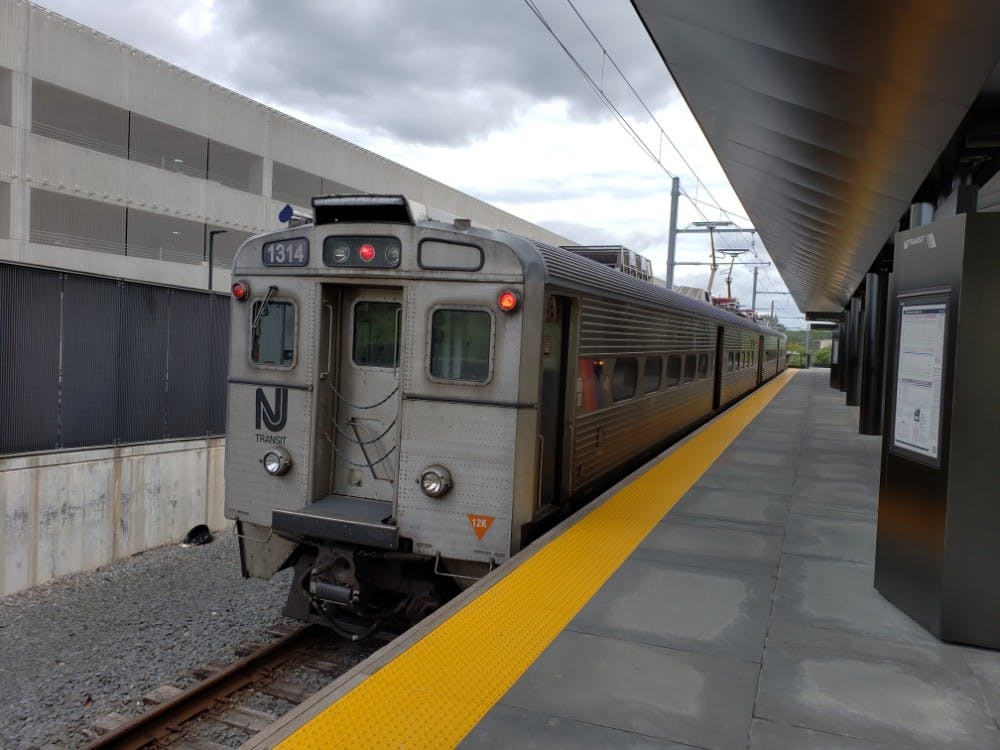In an effort to install an automatic braking system throughout the state, New Jersey Transit is suspending all Dinky service from Sunday, Oct. 14 through January 2019. According to NJ Transit’s website, the Dinky service will be replaced by buses on weekdays and weekends to accommodate passengers from the University to Princeton Junction.
Adam Chang ’20 expressed skepticism that buses would be an adequate replacement, citing previous instances where the Dinky was replaced with bus services.
“On every occasion in the past where they’ve replaced Dinky service with buses, the buses only meet the express train, which comes one in every three to five trains,” Chang said. “The buses also don’t run on an actual schedule. There’s nothing online.”
Chang also noted that, previously, the buses did not run late at night or early in the mornings. Chang feared that the switch to buses would disproportionately impact University staff members and others who may not be able to afford Ubers, taxis, or other alternatives.
While most staff members questioned by the Daily Princetonian do not rely on the Dinky to get to and from work, according to several staff members who do not use the Dinky themselves, many faculty members who live outside of Princeton, N.J. — such as New York — have been affected by similar cancellations and delays in the past.
The statewide transit agency is currently rushing to meet a federal deadline to have Positive Train Control — an emergency braking system that relies on GPS — installed by Dec. 31, according to the New York Times. In 2008, Congress mandated rail companies implement Positive Train Control, initially setting the deadline at 2015 before providing a three year extension. The New York Times reported that the project to implement Positive Train Control statewide in New Jersey is 65 percent complete.
Lecturer in the Princeton Writing Program Catherine Young, a resident of northern Manhattan, catches the 6:11 a.m. NJ Transit train departing New York Penn Station.
Young expressed particular concern for her morning commute to her 8:30 a.m. Writing Seminar class.
“My biggest concern with the Dinky's replacement buses would be their reliability because I would not want to cut it close with getting to campus on time for my class and then have to run to Blair Hall,” she said. “I like to be on campus early and spend time in my office first.”
“In terms of going home, I'm sure it would be a bit annoying to wait for the bus, but I wouldn't be upset about the inconsistent schedule because I would be done with my work day and I would just listen to a podcast or something,” she added.
Professor Carolyn Ureña ’08, also a lecturer in the Princeton Writing Program, emphasized the the necessity of building in extra time for commutes to account for delays.
“I would often only learn of a Dinky cancellation when I was already at Princeton Junction, and it was usually unclear how soon the next bus would arrive to take us to campus,” she said.

She said she hopes that since the upcoming Dinky suspension is heavily anticipated, the situation won’t be detrimental to travelers.
“I hope that there can be an increase in regular shuttle service, especially as the weather gets colder, so commuters aren’t left shivering,” she said.
Professor Katherine Reischl says she expects the new bus services will have a huge impact on her commute from Trenton.
“The busses and shuttles from what I’ve experienced before take more than three times as long to get to Princeton,” Resichl said.
Reischl acknowledged that though the usual system of commuting by Dinky was certainly already flawed, normal cancellations only made the system worse.
Some student reactions were more mild, with students claiming that repairs and modifications to NJ Transit would overall be beneficial.
“They said it’s to replace the brake system, which makes sense since it’s an old train,” Bensu Sicim ’19 said.
Students who use the Dinky more regularly to go home for breaks, however, felt much more indignant, believing that the timing of the installation was very poor and would be hard on students and faculty alike.
“NJ Transit should have thought of everyone as a whole,” Sally Ruybalid ’21 said. “I think it’s great that they’re repairing the train in order to make sure we are all safe. Don’t get me wrong, safety is first, but someone should really plan.”
Daily ridership on the Dinky was around 814 passengers in fiscal year 2017.
Other affected routes on the Northeast Corridor include the temporary discontinuations of Trains 3832 and 3857 — the 10:42 a.m. and 3:42 p.m. from New York Penn Station to Trenton, respectively.
Union regulations for NJ Transit workers forbid individual operators from commenting on this matter.
The Times reported that a lack of engineers is also cause for a number of cancellations throughout the state.
Total cancellations throughout the state consist of 18 daily trains on five of NJ Transit’s lines and weekend service on the Gladstone Branch of the Morris and Essex line.
While the repairs take place, NJ Transit is offering 10 percent discounts on all rail tickets from November through January.








